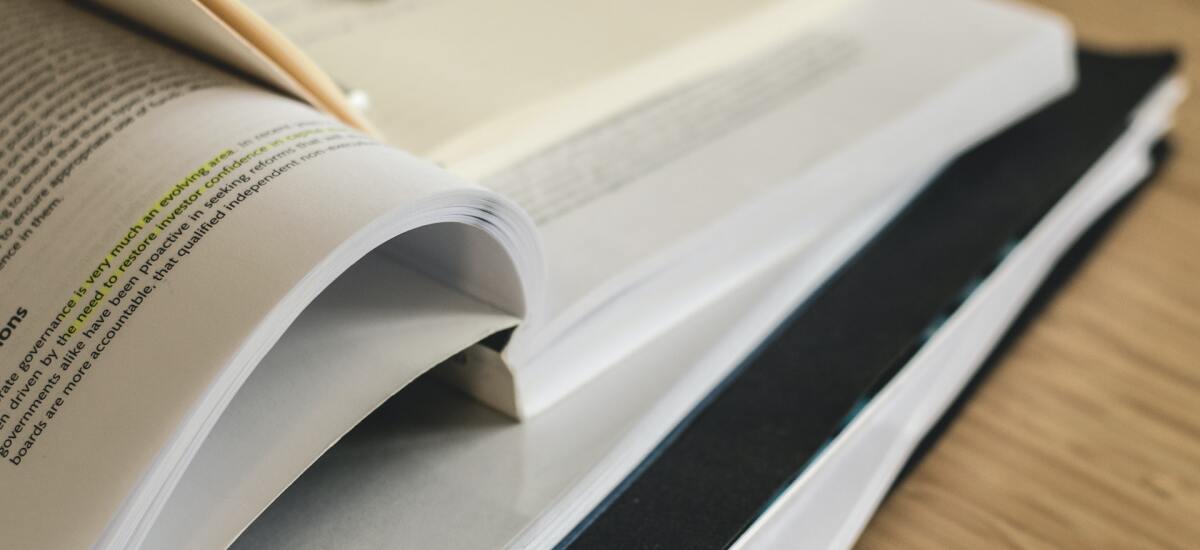Final Thesis at the Faculty of Engineering

Credits, third attempts and co.What requirements do I have to fulfil for a thesis?
- Check your examination regulations to see which requirements must be met for a thesis. These are often a certain number of credits, sometimes also certain courses that must be completed (e.g. internships).
- Irrespective of formal requirements, you should preferably have no or at most one or two easy exams outstanding. In addition to your final thesis, you should not have any difficult, important exams open that you may even have postponed because you have found them difficult so far.
- Check the subject area in which you would like to write to see if there are any special criteria. These are often not open third attempts, for example.
- Bring time with you. You should start looking for a thesis position about one semester before you plan to start.
Formalities for registration and extension
Further information on registration and a possible extension of the processing time can be found here.
Where can I find a place for a thesis?
- The departments assign theses independently. You will not be assigned a thesis by the university!
- The departments usually advertise open theses on their website or physically on the department's notice board. Here you can find a overview of all departments.
- On the websites you will also find instructions on how to apply for a thesis. Chairs often want specific application documents and you will be asked to send applications to the secretary's office, for example, and not to the professor.
- When choosing the subject area: Think about which professors you liked in courses? Which topics did you find exciting? Have you perhaps already done a project or research project somewhere?
- You can apply to several departments at the same time, but be fair and state that you have also applied to other chairs.
How do I apply for a place for a thesis?
- Some departments always accept applications, but some have a fixed application period. Be sure to check the website of your chosen department early to see if there is an application deadline.
- You will usually find information on how to apply and with which documents on the departmental websites. Otherwise, write to the secretary's office and ask politely.
- You usually apply with a letter of motivation in which you also propose your own initial ideas. Have a look at the department's website. In which subject area does the department conduct research? What projects are currently running? What particularly interested you at the time in the relevant course? Write why you are interested in the subject area. Do you have any private projects or involvements that would fit in with this, for example if you are learning another programming language out of interest that could be useful.

Science in applicationHow do I write an external paper?
- External jobs are often advertised by companies and on their websites. Careers fairs are also a good place to start. However, sometimes external work can also be found on departmental websites, as all external work must be supervised by a department.
- If you have a company where you are writing externally, you need to find a university department to supervise the work. Write to departments that are relevant to your topic and introduce yourself and your concept.
- Pay close attention to the conditions the company imposes on you, for example with regard to confidentiality.
What should I look out for when making a final decision on a department?
- You should get the impression that your caretaker is taking time for you and your questions.
- Ask how often you can get feedback. Is there a fixed number of appointments or can you contact us at any time with questions?
- Do you get feedback from your supervisor? Can you have your texts proofread?
- What steps do you need to take before you can register your work? Do you have to write a synopsis? If so, use the synopsis to familiarise yourself with the topic. Should you draw up a timetable? If this is not a requirement, you should still do this to see how much time you have for the individual sections.
- What are important points that are included in the evaluation of your work?
- Is there a template for the work itself or a style sheet? Do you write in German or English?
How to increase your chances of a successful job
- For the departments, supervising a thesis means that the supervisors invest time and resources in you. If you do a good job and deal with an interesting question in an academically successful way, everyone benefits. However, if you do not work properly or independently and your results cannot be used afterwards or the supervision is time-consuming, it is not worth the effort for your supervisor. Therefore, try to show your supervisor that it is worthwhile for everyone involved if you write to him or her.
- Supervision will be better from a technical point of view and more rewarding for the supervisor if your topic is based on a research report in the subject area. Therefore, try to suggest suitable topics. You can also take a look at the publications in the subject area, for example. This will usually give you a good impression of what is currently being researched.

Help! Three applications - three rejections!If you can't find a place
- Be sure to apply early enough and apply to more than one specialism. If you receive a rejection due to a lack of capacity in the subject area, you can offer to write your thesis later.
- If you receive a lot of rejections, take a critical look at your application documents. Are there any mistakes? Is your letter of motivation too generic and doesn't convey who you are? Have you found and mentioned any links to the research areas of the specialism?
- Use our Coaching Program of the Faculty of Engineering.
Exposé? Citation style? Format?How do I write a thesis?
Once you have found a suitable place, it's time for the work itself. There are differences here depending on the subject area, for example whether you are writing a literature-based paper or carrying out your own experiments. Therefore, always ask your supervisor first if you have any questions.
Below you will find some tips and hints on what to look out for when writing your thesis.
Structure of a thesis
The structure may vary depending on the subject area and topic, so always ask your supervisor. In general, however, a rough outline looks like this:
Introduction
Theoretical Background
Methodology
Result
Discussion
Conclusion: Limitations, outlook, further research
Bibliography
Timetable
Some chairs require a timetable before you are allowed to start. Even if no timetable is required, we strongly encourage you to draw up your own timetable, as time flies by faster than you think, especially for Bachelor theses.
Be sure to build in buffer times of 1-2 weeks in total. One week should be before submission and one week after a particularly critical phase that may take you longer than expected.
| Timetable | Bachelor Thesis |
| Week 1 | Reading into the Theory |
| Week 2-3 | Writing the introduction, theory section and methodology |
| Week 4 | Test preparation/implementation (+ Buffer) |
| Week 5-7 | Study/experiment realisation |
| Week 8 | Data analysis |
| Week 9-10 | Writing discussion and conclusion |
| Week 11-12 | Last corrections & printing (+ Buffer) |

Help with research
The University Library offers various courses and support services to help students write academic papers.
- In the General counselling fyou will find the answers to your questions.
- The university also offers a wide range of courses on data literacy.
- Here you will find courses on scientific work, literature research and literature management.
- If you just want to refresh your knowledge, you can do so in the self study programmes.
- If you're an international student and need help with the university's library and scientific work, you can find courses in English here.


